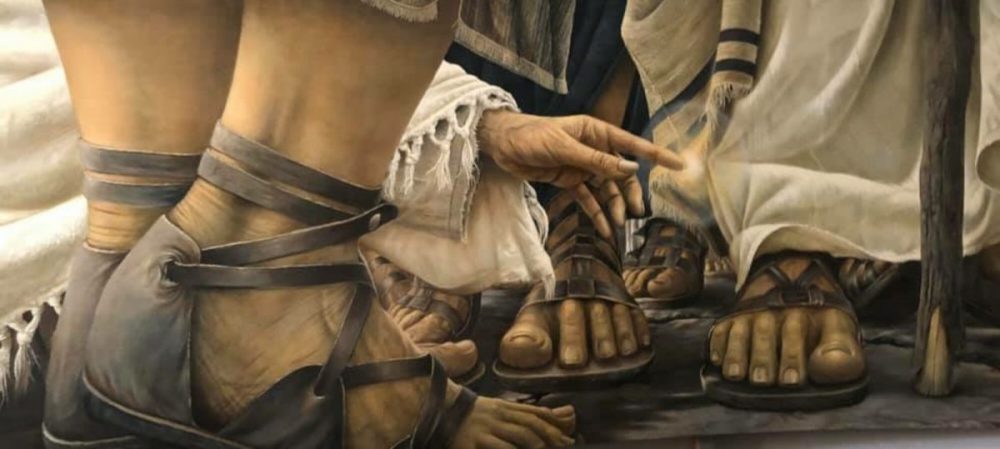
In Luke 15:11-24, Jesus tells the story of the Prodigal Son. I’m sure most of us are familiar with the story of the youngest son who demanded to receive his inheritance from his father even though his father is still alive. We know that the young man then took the money, went to a foreign country, and squandered his inheritance, ultimately ending up feeding pigs.
The story goes on to say that the son came to a point where he realized that he would be better off as one of his father’s servants than where he was currently. The son begins the journey home, and when his father sees him, he runs to him, embraces him, and has the servants bring sandals, the best robe, and a ring, indicating that the son is restored to his position as his son. It is a beautiful picture of the love of our heavenly Father towards all who make their way back to His Presence.
However, during my recent studies of this parable, I’ve discovered that there is a lot more depth to the story than we normally see: more than space allows in this blog post. I would like to touch on one area, though, that I believe is significant. That is the area concerning the son’s motive for returning home, and his thought process for making that decision.
In verses 17-19, the Bible says, “But when he came to himself, he said, ‘How many of my father’s hired servants have more than enough bread, but I perish here with hunger! I will arise and go to my father, and I will say to him, “Father, I have sinned against heaven and before you. I am no longer worthy to be called your son. Treat me as one of your hired servants.”’ The son did not feel he was worthy of being a son, so he thought he would offer himself as a hired servant to escape his horrible situation.
At the time of Jesus, there were three levels of servants. One was a bondsman who was a servant who was part of the estate, almost part of the family. This would have been the type of servant Joseph was in Potiphar’s house. The second type of servant was a lower-class servant who was subordinate to the bondsman. They usually did most of the menial and undesirable work. The third type of servant is the hired servant, which is the one the son asked to be.
As a hired servant, the son did not belong to the estate and had no vested interest in his father’s business. He was a casual laborer- a day laborer who lived independently in the local village. His social status was not inferior to that of his father or his brother. He could maintain his pride and independence, and he could possibly even save enough money to pay off the debt he owed his father. In other words, the son was not even considering the possibility of being restored as a son—and he may not have even wanted to be restored; he was only seeking to improve his situation.
However, after the son returns home and the father runs to him and embraces him, the son begins his prepared speech (21). He makes it through the first part of the speech but stops at “Treat me as one of your hired servants.” The father cuts him off and tells the servants to bring the sandals, which represent his position as a son, since servants did not wear sandals. They brought out the best robe, which was probably the father’s robe, indicating to everyone that he was not condemning his son, but fully accepting him and covering him with his grace. They also placed a ring on his finger, which was the family seal, giving the son authority to conduct business. The father was making sure that everyone knew he was not a servant, but that he was fully restored to sonship. “This is my beloved son, in whom I am well pleased.”
I don’t believe the son was fully repentant when he first decided to return to his father. Either because he didn’t feel worthy to be considered a son, or he still wanted to maintain his pride and independence, he was only looking to serve his father to improve his current situation. It wasn’t until after he experienced his father’s grace and felt his embrace that he truly surrendered and entered fully into his role as son.
After studying this, I couldn’t help but consider my own relationship with our Heavenly Father. I had to ask myself, “Have I truly experienced His embrace and responded to His grace by accepting my position of sonship, and I don’t have to walk in shame (Rom. 8:15-17)? Do I understand that I am fully accepted by Him through the blood of Jesus Christ and protected from condemnation because I am clothed with His robe of righteousness (2 Cor. 5:20-21)? And, do I understand that, as His son, I have been given authority to do the works of Jesus through His name (John 14:12-16)? Or, because of feelings of shame, unworthiness, or pride, do I only see myself as a servant who is merely using God to try to improve my current situation while missing out on the blessings and relationship that can come from sonship?”
How about you? Are you a servant or a son/daughter?
NOTE: If you continue reading the parable to the end, you will notice that the eldest son even struggled with his identity as a son (verses 29-32).
